It is a Monday morning in Autumn 1982. The days are getting shorter, but green remains green in the tropics. The sun barely breached the night over Mozambique when I walked to the hospital for an early ward round. It was my turn to do the clinic at Makani's Drift on the Pongola River en route to Swaziland. For some reason, I felt uneasy about this day, didn't sleep well, and was glad when the first light finally appeared in the windows. I finished the ward rounds, reviewed the discharges that will travel home with me to Makani's Drift and enquired about the ambulance.
"The ambulance?" Simon asked. "Oh yes, that would be Land Rover number 3."
My heart sank.
"Any chance of number 2 or any other number?"
"No doctor," he said, shaking his head sadly. "That is the only one left; the others have all been taken."
I knew why number 3 was left. It was because that Landrover was in the worst condition of them all, and no one would have wanted to use it.
"Simon, will this ambulance take us to Makani's Drift and back again today? It is a long drive, and the sand is dry and thick".
"I think he will be okay, doctor. I checked him last night. He started. If he doesn't want to start, keep trying. He will eventually start!" Simon was trying hard to convince me, and somehow, he failed.
Ten discharged mothers crammed into the ambulance with their babies.
When all were seated and the doors closed, I moved in behind the steering wheel, lifted my door on the loose hinges and slammed it shut. Simon was nowhere to be seen.
I moved the gear stick to neutral, took the key between my fingers, pushed the clutch down with my left foot and looked down. My foot and the clutch disappeared through a hole in the floor.
I turned the key.
"Poi-joi-joi-joi-joi-joi," the engine went with clearly no wish at all to start the journey.
I tried again and again. The response remained the same, perhaps a bit lamer towards the end.
The battery is going flat, I thought. Better here than on the way!
But Simon said Keep trying. He will start!
So, I pushed my foot through the hole and turned the key again.
The lame sounds got even weaker, and just before the battery died, the engine started with a big bang and a cloud of smoke.
I pushed the revs up; the engine shook the chassis like a wet dog, and then she settled into a purr.
My crew of women and children was dead silent in anticipation until now. They all started talking at once, smiled with strings of white teeth, and were happy to be on their merry way home again.
But in my chest was that same feeling that kept me awake the night before…
As we travelled, the Land Rover reeked of diesel fumes and let out a puff of smoke now and then, but it kept cruising at a decent speed.
And then it all turned upside down.
As we came around a bend in the road, we drove straight into a herd of wild elephants. A big bull was parked across the middle of the road. I needed no brakes, for the thick sand slowed us down and killed the engine a few meters away from the bull.
A herd of around 150 wild elephants at that stage still migrated yearly between Mozambique and Maputaland in Northern Kwa-Zulu. In later years, they were contained on the South African side of the border using an electric fence. The Tembe Game Reserve was established with a substantial number of local elephants. While still roaming free, they could get aggressive quickly as the relationship with the locals was somewhat acrimonious due to their regular destruction of crops and huts.
As the ambulance came to a standstill in the thick sand and the engine died, the herd became restless. The elephants swirled around each other, sniffing the air in the direction of the ambulance with their trunks high and their ears flapping. We were stuck in the middle of the herd. My crew fell dead silent. Their wide white eyes fixed on the giant animals all around us. A child picked up the tension and began to cry. His mother hugged and hushed, her eyes not wavering from the big bull blocking the road ahead. As if aware of her anxiety, and this, in turn, prompted deep thought, the vast animal lifted his front foot off the ground and started swaying his trunk from side to side.
I looked down at the floor. Sand pushed through the hole in the floor, limiting the distance I could push the clutch down. I slammed my foot into the sand and turned the key.
"Poi-joi-joi-joi-joi-joi", the engine went with no effort at all to get us out of trouble.
I tried again and again.
A cow on the right side of the vehicle became very restless and then turned aggressive.
She threw dust in the air, trumpeted, and then charged.
She stopped 15 meters away in a cloud of dust, her trunk lifted high to test the air.
Why was she so angry? I wondered and intuitively looked to the left side of the road. On the other side of the Land Rover, I spotted her calf. He was confused, running in all directions, anxious to get to his mother.
Someone tapped me urgently on the shoulder, and I looked around.
"Udokutela! Udokutela! Hamba! Hamba!" (Doctor! Doctor! Go! Go!) it chorused behind me. The mothers were clutching their children to their chests, tears running down their cheeks. All the children now joined in the wail.
I pumped the accelerator, pushed the clutch through the hole deep into the sand and turned the key.
"Poi-joi-joi-joi-joi-joi", the engine went, distinctly lamer towards the end.
The cow threw up dust again, trumpeted, and charged—her trunk held high like a battle flag. Every muscle bulged with adrenaline. Once more, she halted in a cloud of dust, this time just a few meters away, towering over the ambulance. Her ears were spread wide, and her eyes wild. Her mouth hung open as if short of air, and the rasp of her breathing echoed in her chest, cutting through the cacophony in the ambulance.
One of the mothers opened a door, considering running for her life. I sharply rebuked in Zulu without turning my head, watching every movement of every furious muscle in the elephant. The door closed unwillingly.
Again, I turned the key. The engine coughed a thick cloud of diesel smoke and started. I slammed the petrol to the floor and released the clutch. The Land Rover snorted, kicked up a cloud of dust and flew out of the thick sand. As if this was the signal the bull was waiting for, he slowly walked forward. We skimmed behind the wall of elephant and shot like a rocket out of the herd.
In the rearview mirror, the mother and calf rushed to reunite. The anxious cow circled the calf, checking him with her trunk to make sure he was unharmed. She then ushered him between her front legs, where he found comfort in the scent and taste of her udder in her shade.
The cheers of joy from my crew were deafening as they opened their breasts in joy to comfort their young.
And forever in my heart would be the story.
How ferocious and confronting, yet how tender is the bond that binds a mother to her young?
Still pondering the impact of instinct on Mothering as we experienced it in Part 1, I decided to visit one more of Africa's formidable mammalian mothers to better understand the profound impact. In the process, we need to consider the impact of the development of a placenta on the mothering and survival instincts throughout the chain of evolution. So, bear with me for a little longer. Placentalia mothers (a subclass of the Mammalia), like elephants and humans, often exhibit fiercer protective behaviours than their counterparts in the Class Mammalia, like the Marsupialia, due to their reproductive biology and environmental pressures. Placental mammals, with more extended gestation periods (approximately 22 months for elephant cows, 8 months for hippos, and 9 months for humans), invest heavily in fewer, more developed offspring, fostering intense maternal instincts. This makes them much more vulnerable to extinction.
To survive, especially the mothers who often display aggressive defences, use powerful jaws, claws and canines. Hippos are the most lethal large land animal in Africa. Authorities estimated that, on average, over 1000 human deaths are caused annually by hippo attacks. Marsupials in Australia, such as kangaroos, have shorter gestation periods (averaging only 31–36 days). After birth, the blind, hairless, jellybean-sized joey crawls with underdeveloped limbs into the mother's pouch for further development and nursing over an additional 6–9 months. Mothers may flee rather than fight, as joeys are more easily replaceable.
Now, let me introduce you to Mavis and, one of the most protective mothers on Earth.
Mavis walked carefully, easing forward one foot at a time along the dusty footpath winding along the water's edge. The pile of wood on her shoulders stooped her awkwardly. She returned home later than usual because the best firewood was far from home, near Lake Amanzimnyama.
Then she heard it again! The soft splatter and blowing sounds of a hippopotamus calf broke the surface not far from the shore. Her eyes pierce the dark. This is the second time she heard the calf. But still, she can't hear the mother… If only the darkness were not so dense. It is already grazing time. The hippos usually start wandering out of the lake to look for grass after sunset. What if the mother left the water already and began feeding on the patch of grass along the slope near the water line? The mothers often leave the lake to graze near the water's edge while leaving their calves within easy reach in the water shelter. Her eyes searched the night along the hill. A bent-over tree. A patch of reeds. Some shadows on the grass. What shadows are they? She eased a foot forward. If the mother is out there and charges, she will throw the pile of firewood at her and run, Mavis thought.
It was the soft thumping and the vibration of the ground under her bare feet that made her swing around. The vast, dark shadow of the hippo cow seemed to skim over the ground towards her without touch. She was directly between the calf and her mother. And then the hippo was on her. She screamed at the top of her voice and threw the woodpile at the cow. But it was all too little and too late. The firewood bounced off the hippo's back like matchsticks over a kettle. The cow knocked her over. Mavis instinctively rolled downhill towards the water's edge, away from the cow. The cow snapped her huge jaw closed and grabbed Mavis by the leg. She rolled over. The hippo was towering over her like a mountain. The next bite went to her chest. A second scream echoed over the water as the canine tooth slammed through her chest, fracturing the ribs and piercing her lung. The second tooth sliced into her abdomen. The hippo tossed her through the air like a rag and plunged back into the water to join her calf. With her precious calf on her side, she disappeared under the dark surface to gallop along the lake floor, away from the human danger, to hide amongst the reeds on a far-away shore.
Mavis lay motionless on the edge of the water when the men and women of the homestead came to her rescue. They had torches and sticks on fire, beating on tin cans to drive the hippos away. And then they found the body of Mavis, soaked in mud and blood. She was still breathing, bubbling air and blood out of large holes in her chest.
Mavis was taken to Manguzi Hospital on the Makatini Plains. The nurses cleaned her maimed body, and we set out to repair the damage. I inserted two chest tubes, one in each chest cavity, and connected them to underwater drains to remove blood and air from the chest. The tubes also assisted in the collapsed lung expanding again. We placed her on a ventilator to help her breathe, and the holes in her chest wall were repaired. She had a fractured femur, and the patella was torn off her leg. Fortunately for Mavis, the abdominal wound penetrated muscle only. Mavis recovered well over several weeks and, when weaned from the ventilator, could narrate the whole ordeal.
Mavis died from pneumonia in her damaged lung a few years later.
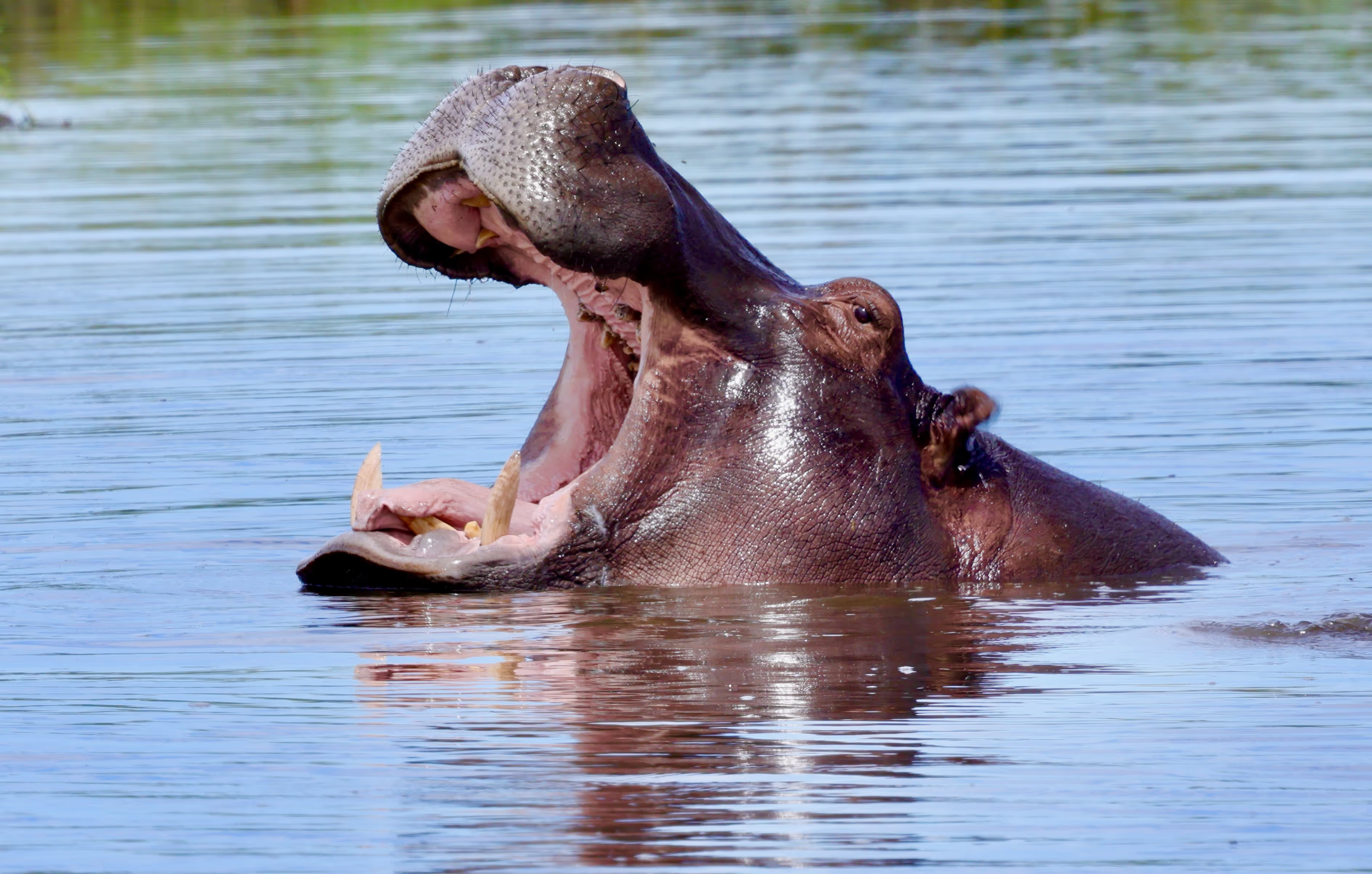
Hippopotamuses are one of the most ferocious wild animals in Africa, and cows are known for fiercely protecting their calves. A mature cow can run up to 30km per hour and weigh 2 tons, or 30 times the weight of Mavis. Her canines, up to half a meter long, protrude out of powerful jaws, opening to 150 degrees with a comfortable span of one-and-a-half meters. What a formidable mother she is to protect her young!
I took the photo above at a lake near Tsumkwe in Namibia
It was a Sunday afternoon, not long after the nightmare of Mavis. We drove out to the lakes with my retired Ford F250 salvaged from a scrap yard in Durban. A willing old scamp he was, but I'll tell you more about him later. The Landrover is enough for one story!
We drove into a tropical storm and slowed to a near standstill with the wipers frantically working to clear buckets of water from the windscreen. As we were hanging over the dashboard to see where the road was, the rain stopped again, literally out of the blue.
If only the tears of tragedy could wash and clear in this way…
The Ford picked up speed again, and soon, we were back on our merry way. Suddenly, with mud magic, the left wheel slipped off the road and into a gutter.
The front axle wedged onto a mud bank. Within seconds, all four wheels burrowed down, burying the Ford to the chassis. I looked in despair at my trusted winch on the bullbar. Forward was futile. The Ford needed to reverse off the bank somehow.
So, we were stuck beyond our own resolve, I concluded after a few laps around the sad spectacle. I looked to the West. The fire in the sun was dying as it dropped out of the sky. We were not prepared for this. We had no extra clothing and no torches. We would have to be quick, or this could turn into a disaster.
"Come, Hannelie," I said in my best all-is-under-control voice. "Get the children. We'll have to start walking home fast before the hippos come out to graze. If we move quickly, we can beat them and be home at midnight".
I put Gawie, the oldest, on my shoulders, and Hannelie pinned Hildegard to her hip. She was well along in her pregnancy with our third child.
"Which way?" Hannelie asked.
"With that footpath past the lake," I said, pointing West. "That shortcut will save us at least an hour. We will join this road again a little further that way," I then encouraged myself in thought: we have at least another half an hour before the hippos come out of the water to graze.
Hannelie did not waste any time and took off on a flight.
When it became clear where we were heading, some of the women and children from the homestead of Mavis appeared on a hill.
"You must not go that way! The hippos will kill you!" they called in Zulu.
I waved at the anxious group, smiled in appreciation, but pushed on as fast as we could. Hannelie needed no encouragement, and I struggled to keep up.
Soon, we were on the footpath Mavis used to pass the lake on that ill-fated night. The sun briefly paused on the horizon, his red eye sad for the night ahead. A hippo cow and her large calf broke the surface 30 meters from the shore. She blew a rainbow of spray from her nostrils, honked a hollow warning over the lake and flicked her ears at the figures hurrying along the shore. Her calf moved closer for comfort and touched her flank with its own. She snorted a second warning at the intruders.
"Don't worry," I said. It is at least half an hour before the cow comes out of the water. In any way, she won't come out while humans are around".
Hannelie secured the grip on her child and looked at the dying sun. She did not speak. But I knew nothing would stop her now.
We joined the vehicle track, and then it was dark. Pitch dark.
The white sands of the road reflected dull under the night sky. Hannelie was a vague shadow lurking ahead, barely visible against the shifting landscape.
A jackal howled for the missing sun. A nightjar joined the sorrow with his 'pijo pijo pijo worrrrr' somewhere in the forest or beyond.
We hurried along the track for another hour. And then the magic happened.
A full moon, the size of a house, quietly sailed into the skies from behind the forest wall, lighting up the world with her friendly glow. Next to the road, the skeleton of a fallen tree picked up the moonlight, white.
"Hannelie!" I called her to a halt and invited her over to the trunk.
"Come. Sit down. Relax. The danger is over now."
Hannelie sat down on the stump, moved Hildegard onto her lap and clenched her to the breast. So, we sat quietly for a long while, absorbing the spell of the unflawed night.
"We should drink in this moment under the African skies and make it a memory for life," I said and took her hand in mine.
Forty years passed, and memories became like smooth rivers glowing in the night. The same rivers that tormented, twisted, and murdered before.
As the full moon rises over the Zambezi, I conclude my story at the campfire. The trunk of the massive Baobab tree kindles the flames in ancient patterns on his crumpled and scarred hide. The puff and crackle of the fire only deepen the silence. And then a jackal howls somewhere, his lonely melancholy at the moon.
"The child on her hip became critically ill and then permanently disabled", I continue. "The child in her womb died as an infant in a tragic accident".
A yellow flame in the fire lapped over the red in the coals. A spark flung into the dead of night.
"Yet, the raw grief made her more determined to mother and survive. Hannelie cherished and cared for Hildergard for over 40 years and gave birth to another child to replace her loss. The tears that once fogged the world, then washed clear her view in the storm".
Such is my admiration for the woman of my dreams and the mother of my children.
Next Time:
Let's break away from serious, TV, and electronics.
Let's go light, short, and natural, and see where it takes us…
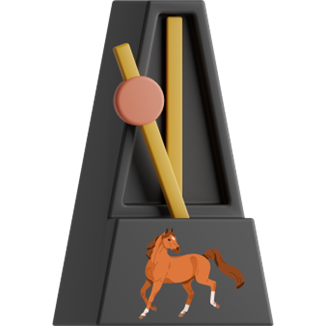
The Song of Tap
an ode to the senses
Not a subscriber yet?
Click here to subscribe - it's free


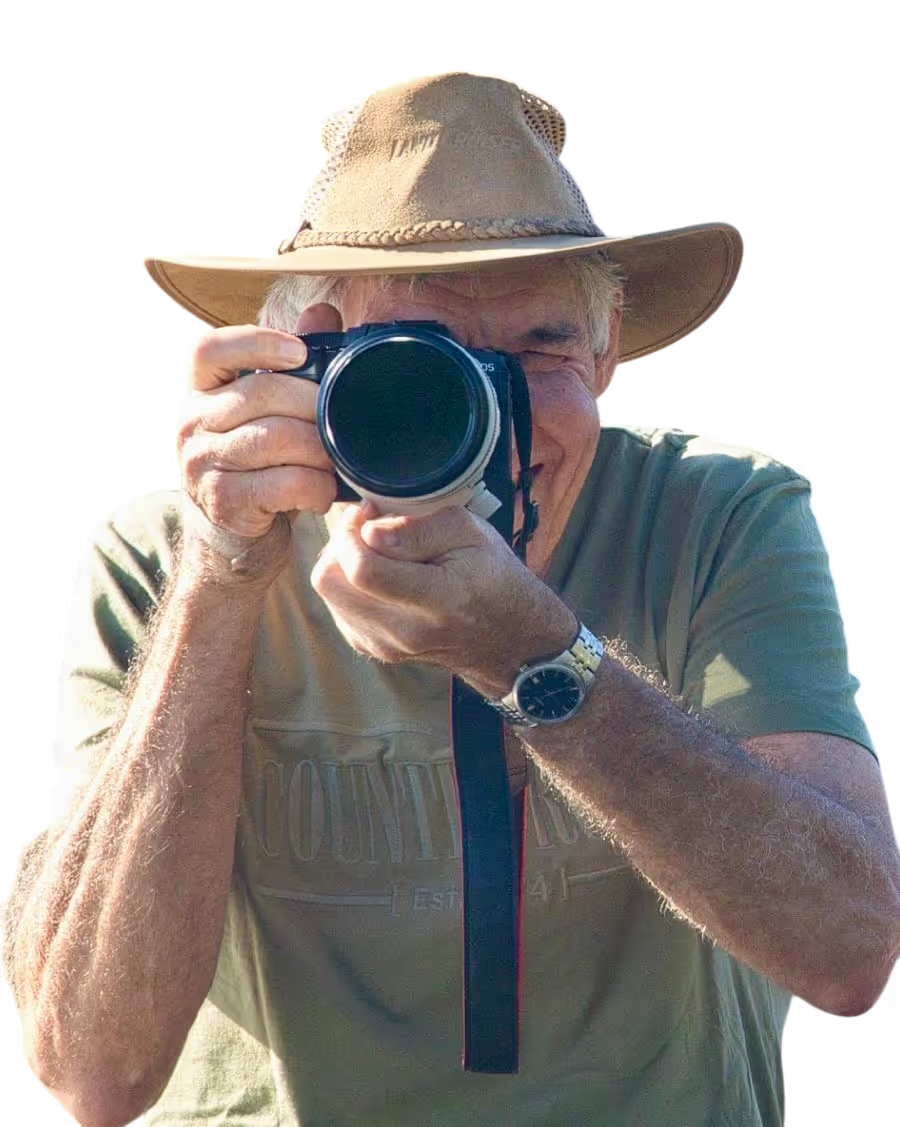
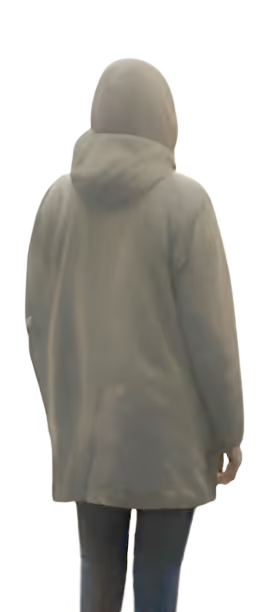
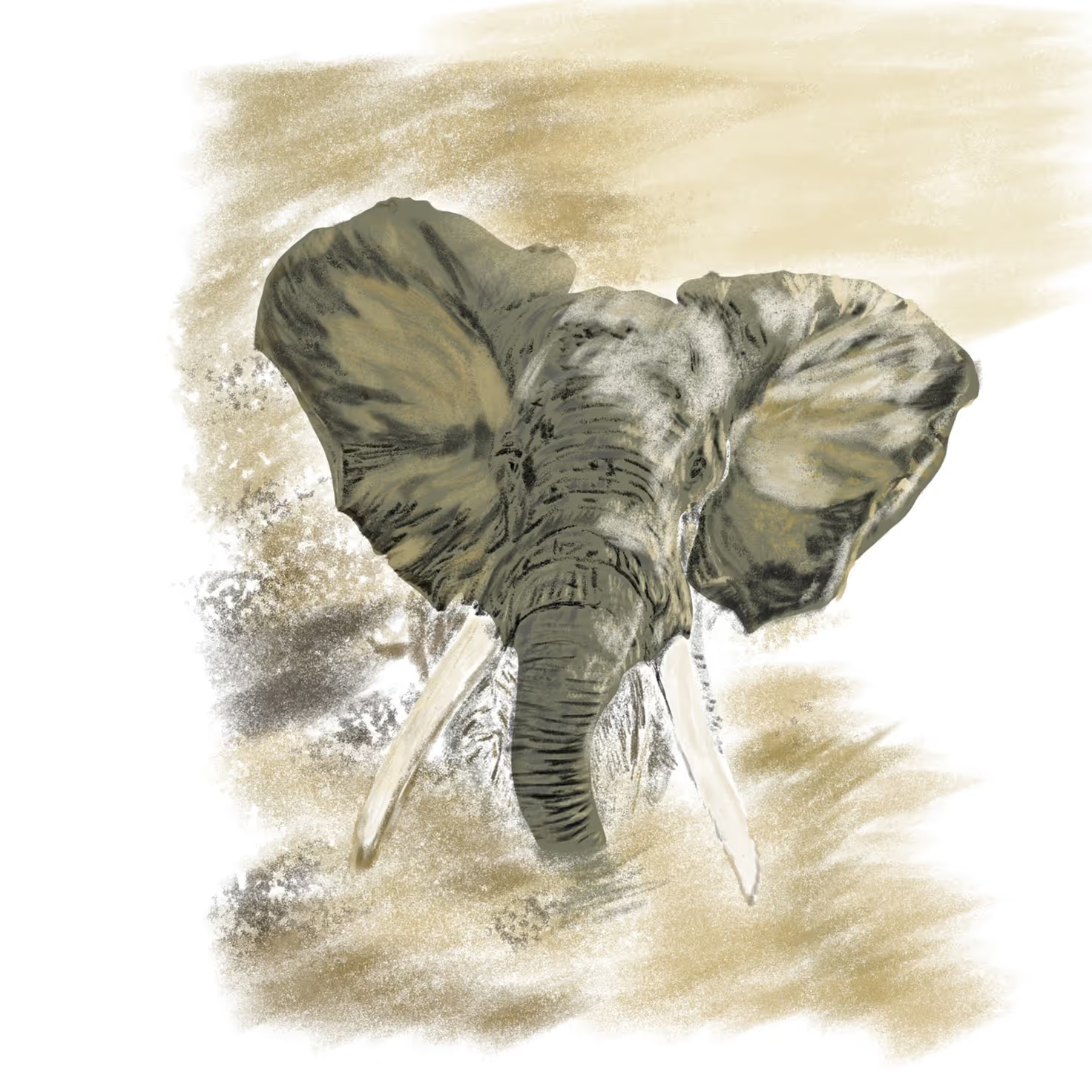




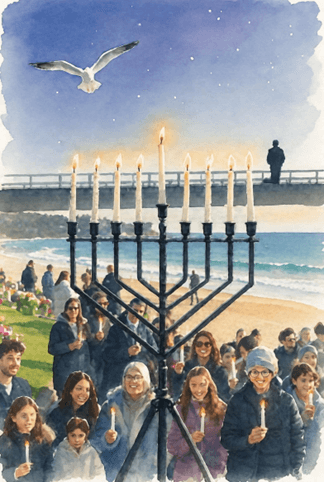

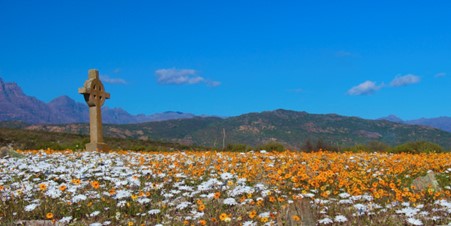


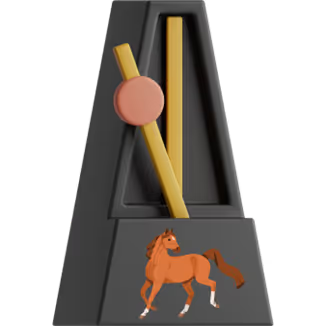
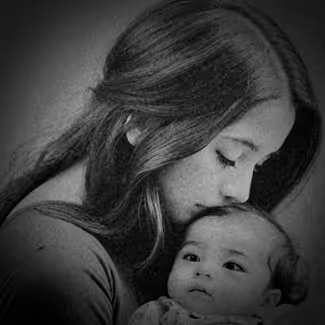

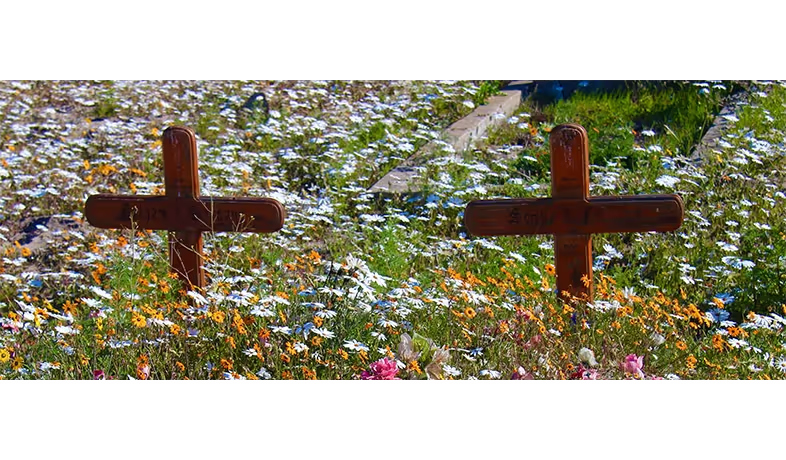
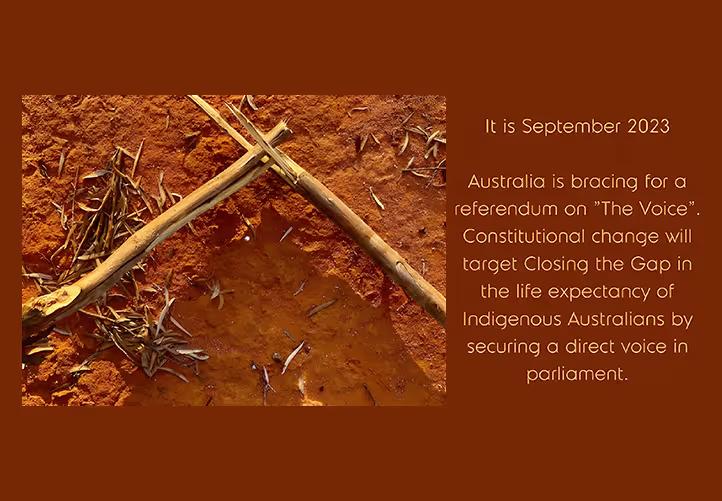
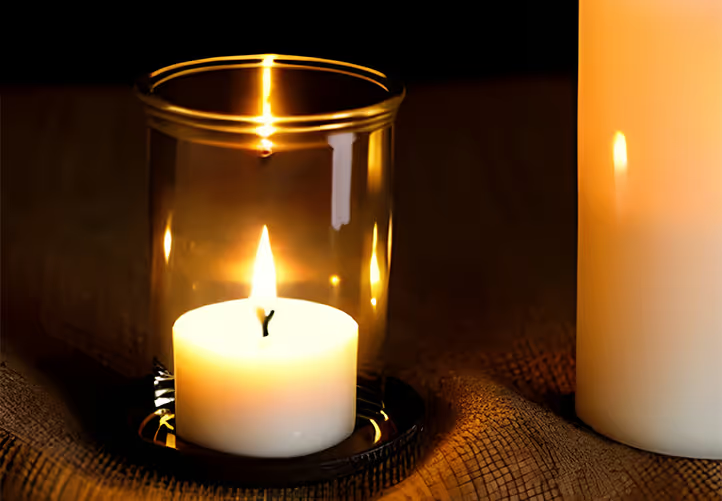

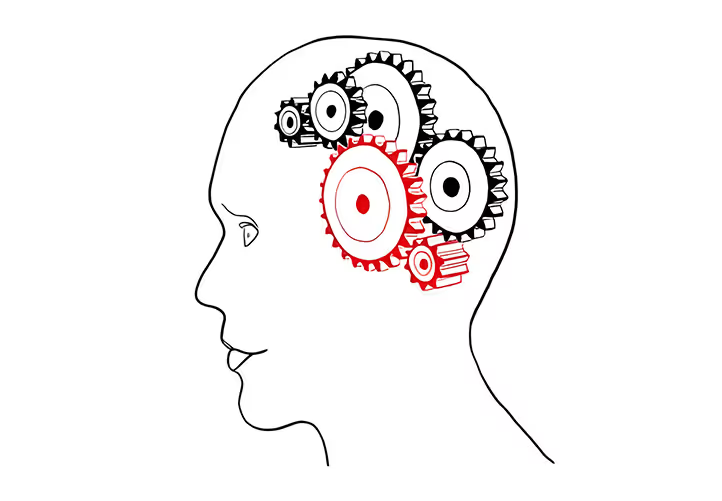
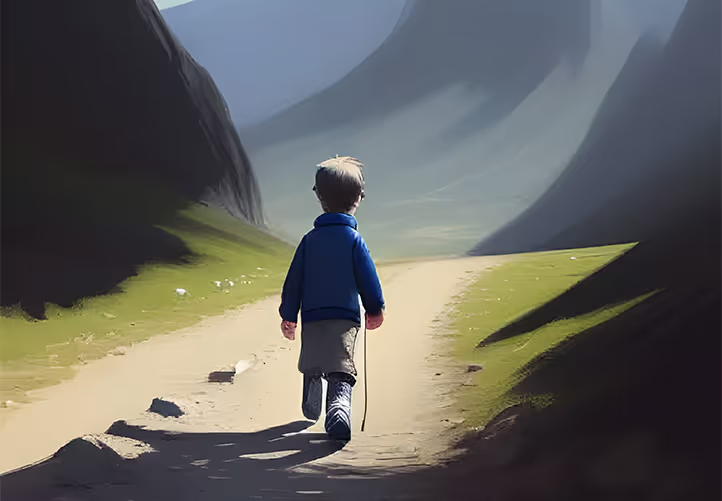
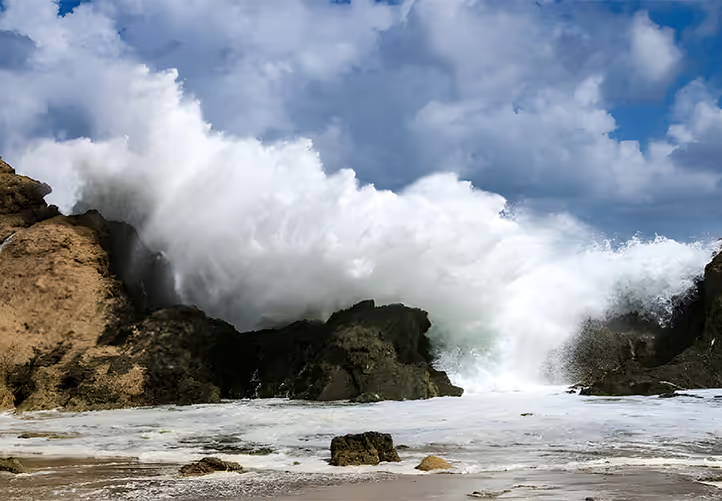
.svg)
.svg)